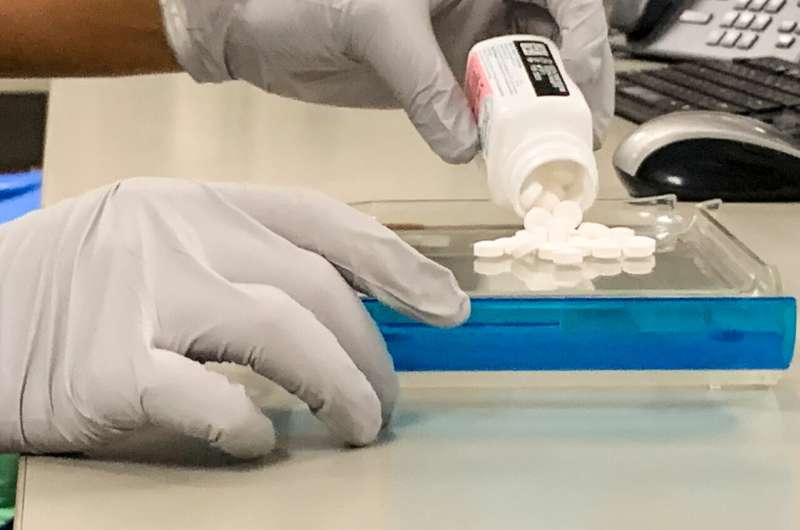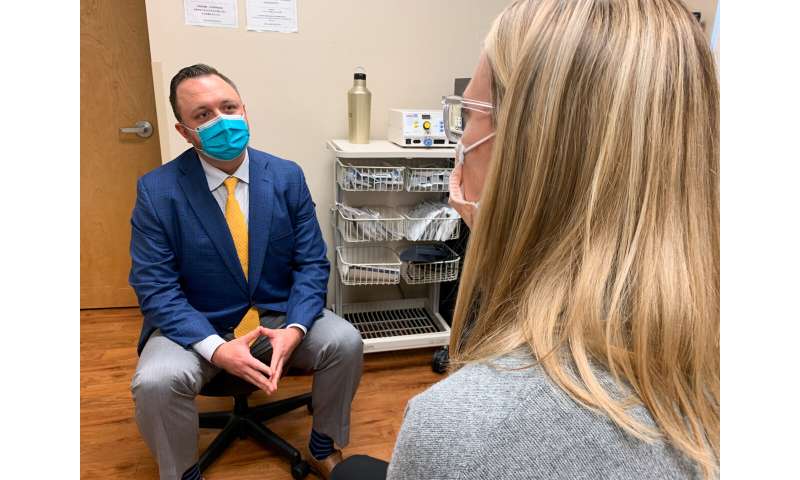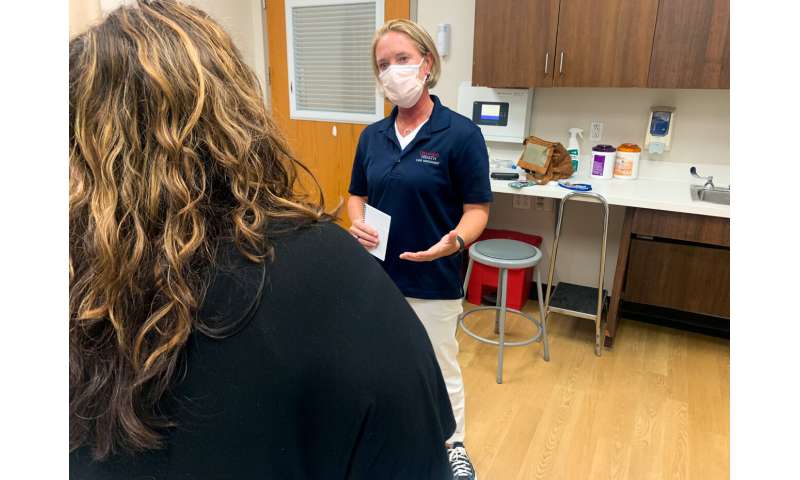Survey: Most willing to forgo opioids after surgery if pain can be effectively managed without them

Due to the COVID-19 pandemic, 2020 was the deadliest year on record for drug overdoses, with more than 93,000 deaths in the U.S. For too many, addiction begins in the hospital, where opioids are widely prescribed after surgeries or injuries. A new national survey by Orlando Health finds nearly four out of five Americans believe opioids are necessary to manage pain after surgery, but most would also be open to forgoing these potentially harmful medications if there are better options.
The survey found that 65% of Americans are more worried about managing their pain than the risks of opioid addiction, but more than two-thirds (68%) would be willing to try opioid-free pain management after surgery.
"It's very important for us to keep in mind that people do have pain and people do need pain control. The solution is not to just pull opioids away from people and leave them to fend for themselves," said Luke Elms, MD, a general surgeon at Orlando Health Dr. P. Phillips Hospital. "That is a real problem after surgery that needs to be addressed in a compassionate manner."
Dr. Elms has implemented a protocol that uses common over-the-counter drugs like acetaminophen, ibuprofen and muscle relaxers. Used in coordination, these safer medications can offer powerful pain relief that is more targeted to a patient's specific areas of pain than the blanket coverage of opioids. It also helps patients recover faster without the side effects that accompany opioids like nausea, dizziness and constipation.
"When I talk to patients and reassure them that we're going to be replacing opioids with a much more effective and safe method, and really talk to them about the risks of opioids that have become much more evident with the research that's come out recently, most patients are very open to the idea," Dr. Elms said.
Dr. Elms says some patients are so worried about becoming addicted to opioids that they delay the care or procedures they need. Andria Herr was not willing to take that risk when she learned she needed surgery to remove her gallbladder.
"I lost someone close to me as a result of addiction from prescribed medications after a medical procedure," Herr said. "So I did extensive research to find a surgeon that uses the ERAS program, or Easy Recovery After Surgery, which is based on the idea that there are no opioids, but your pain is managed. I was happy to find Dr. Elms, who had a protocol in place that has proved to be effective and safe."
The opioid avoidance program is part of a comprehensive approach at Orlando Health to combat the opioid epidemic. It works in tandem with Jaime Bridges, an opioid coordinator at Orlando Health Orlando Regional Medical Center who is trained to recognize those who are struggling with or at risk for opioid use disorder. Bridges provides counsel and resources to ensure patients are supported while they're in the hospital and also after they leave.
-

Dr. Luke Elms speaks with a patient at Orlando Health Dr. P. Phillips Hospital about her pain management options after surgery. Elms has implemented a protocol that uses a combination of common medications like ibuprofen and acetaminophen that often provides pain relief that is as good or better than addictive opioids. Credit: Orlando Health -

Jaime Bridges is an opioid coordinator at Orlando Health Orlando Regional Medical Center. Her personal struggle with opioid use disorder helps her relate to patients and give them hope for recovery. Credit: Orlando Health
"It's obviously common for people to become addicted to opiates. So for the millions of people who have already struggled with that disorder, their risks are greatly exacerbated," Bridges said, "When these patients are discharged, whether they were here for an overdose or an injury, we give them all of our contact information and that person can call us, even in the middle of the night, and we will answer the phone and provide the support they need."
Bridges' personal experience with opioid use disorder helps her relate to patients and gives them hope that recovery is possible. She became addicted after being prescribed opioids for an injury as an Orlando police officer.
"My recovery date is coming up on 10 years," Bridges said. "When I walk into the room and say, 'I was a cop, and I've been where you are,' it helps them realize that addiction can happen to anybody. And fortunately or unfortunately, I've had a lot of these awful experiences patients are going through, so I feel like I'm passing the threshold for them so maybe they don't have to. It's my job to come in and advocate for them, be a voice with them by their side when they're feeling so small."



















